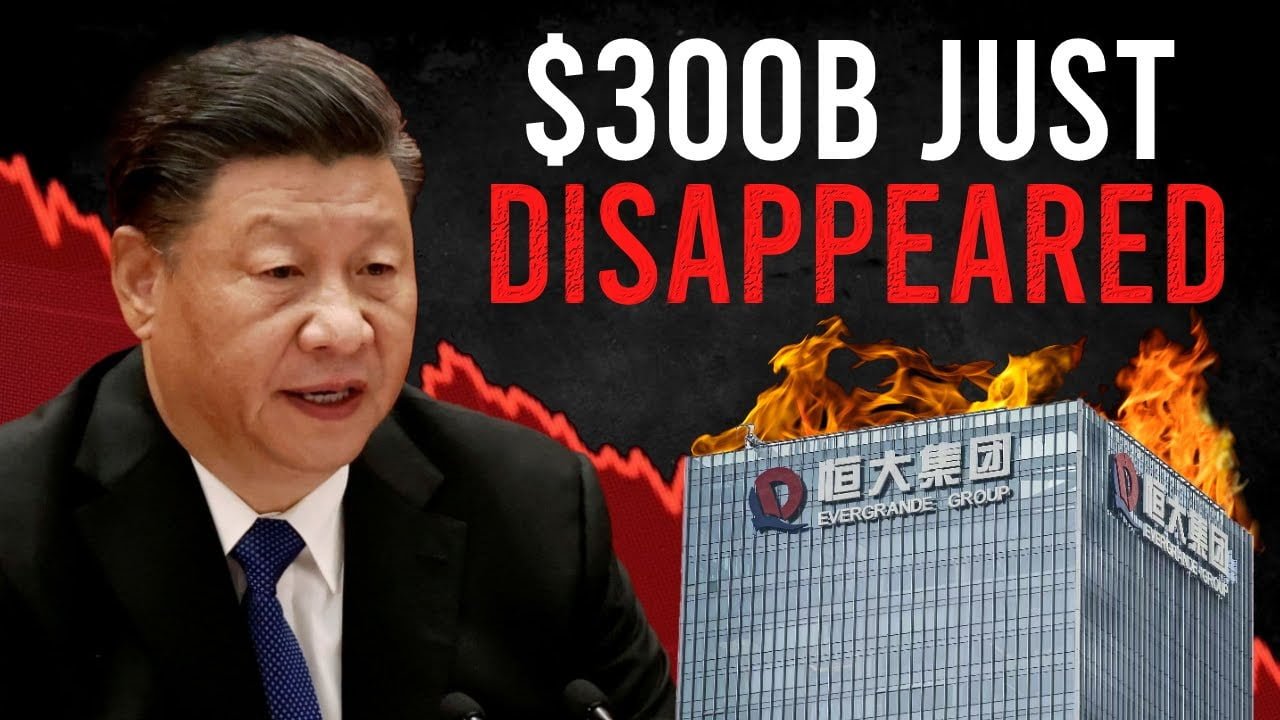Archive:
Follow my Twitter for more financial content: https://twitter.com/casgains.
For business inquiries, please email founders@casgainsmedia.com.
Social unrest has erupted in China after almost $6 billion worth of deposits froze up. Thousands of police were deployed to shut down the protest. Following the protest, hundreds of thousands of Chinese homebuyers refused to pay up to $300 billion worth of mortgages. Mortgage payments have reportedly stopped on 301 projects in 91 cities. China is experiencing a repeat of the 2008 recession but on a whole new level.
An entire social revolt is growing as the CCP desperately censor the growing uneasiness. Internal government meetings have revealed substantial stress within the CCP and the signs are showing that it’s only going to get worse. China’s social unrest has revealed a multitude of flaws within the country, and the implications will ultimately affect the rest of the world. Over 400,000 Chinese citizens witnessed their bank deposits freeze recently.
When depositors went to the ATM to withdraw their money, their withdrawals were simply declined. Panic ensued after people couldn’t even withdraw their own money. The bank freeze was a result of a massive fraudulent scheme that played out for over a decade. Protests about the bank freeze have gone viral on Chinese social platforms despite repeated attempts from the CCP to censor them.
While the bank freeze only occurred within five different banks, hundreds of other Chinese banks are at risk according to the Chinese government. After the bank protests went viral, the social unrest spread to almost every part of the country. A recent internal government property meeting leaked several major concerns. 300 million square footage of property construction has been halted.
Local governments can no longer withstand the pain. A 200 to 300 billion yuan property fund has been rumored to not be enough. Property sales are down 20%. Construction starts are down 30%. Perhaps the worst of them all is China’s recent mortgage revolt. Because Chinese homebuyers are not paying their mortgages, financial regulators have created a proposal to allow citizens to pause their mortgage payments. The amount of unpaid mortgage payments equals to 2 trillion yuan or $300 billion.
The problem with both the mortgage boycott and the bank freeze is that a domino effect is about to occur. Five banks went bankrupt, which will spread into 20 banks, then 100, and eventually, the entire banking system. This is because like almost every country’s financial infrastructure, the Chinese banking system relies on fractional reserves.
When someone deposits $1,000 in the bank, the bank does not hold onto that $1,000. The bank will instead keep $100 as reserves and loan out $900 so that they can receive income through interest. The lender of that $900 will then spend $900 on products and services. Because one man’s spending is another man’s income, someone else will receive that $900 as income and deposit it into the bank. The bank will now loan out $810 and keep $90 in reserves. The lender of that $810 will then spend $810. Someone will receive $810 as income and deposit it into the bank. This will cause the bank to loan out $729 and keep $81 in reserves. This cycle will keep going on over and over again, causing the bank to be leveraged by up to 10 times. This is called the monetary multiplier effect, because the lending is multiplied over and over again. In the example that we looked at, the money supply started at $1,000 and eventually increased to $10,000. $9,000 was created out of thin air purely from the multiplier effect. When citizens all try to withdraw their money at once, they will quickly realize that the banks don’t actually have the money they deposited. This is because the banks simply created money out of thin air.
Economists worldwide know that China’s recent social unrest is a signal of a complete disintegration of the Chinese economy. The mortgage boycott did not come out of nowhere. It took years of mismanagement and greed to build up all of the frustration that came in the form of a boycott. Because housing prices kept going up year after year, Chinese citizens were eager to purchase any property on the market. Similar to the build up of the US’s 2008 recession, citizens could not even imagine that housing prices would ever crash. As a result of increasing housing prices, people would save up for years just to get their hands on real estate.
An estimated 70-80% of Chinese household assets are tied to real estate. Imagine saving up for decades just to finally purchase a single property. This type of behavior was incentivized by Chinese culture, where newer generations would prioritize purchasing a home. Such a huge buying frenzy fueled up the booming property market that continued on for decades.


![Prepare for Armageddon: China's warning to the world | 60 Minutes Australia maxresdefault[3]](https://centermatter.com/wp/wp-content/uploads/2021/11/maxresdefault3.jpg)
![New York Officially Launches Orwellian COVID-19 Vaccine Passports Developed In China 10502348-be69-4906-8911-db1007414b62-large[1]](https://centermatter.com/wp/wp-content/uploads/2021/05/10502348-be69-4906-8911-db1007414b62-large1.jpg)


![China Censors the Oscars To Block a Hong Kong Protest Film maxresdefault[1]](https://centermatter.com/wp/wp-content/uploads/2021/04/maxresdefault1-5.jpg)
Leave a Reply